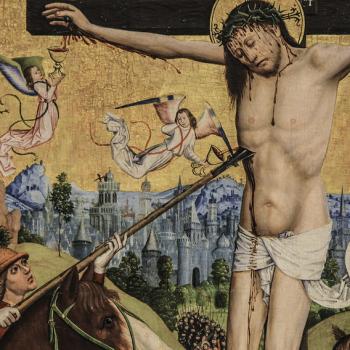In a discussion of how Roman Catholic church bureaucracy and the American Academy of Religion both try to keep the lid on supernatural experiences, the notable Lutheran sociologist Peter Berger cites some interesting etymology:
Sociologists who deal with religion often like to refer to the etymology of the Latin word religio. Supposedly it derives from the verb religare—to re-bind. If so, this points to a very valid insight, most fully formulated by the classical sociologist Emile Durkheim—namely, that religion provides the symbolic ligature that keeps a society together. I understand that Latinists reject this etymology for a different, and actually more interesting one: Religio derives from relegere—to be careful. In other words, the supernatural is a very dangerous reality—one has to approach it with great caution. This understanding was brilliantly formulated by Rudolf Otto, arguably one of the greatest twentieth-century historians of religion, in his book The Idea of the Holy. Religion is always based on an experience, on whatever level of intensity or sophistication, with a reality that is intensely dangerous. . . .











